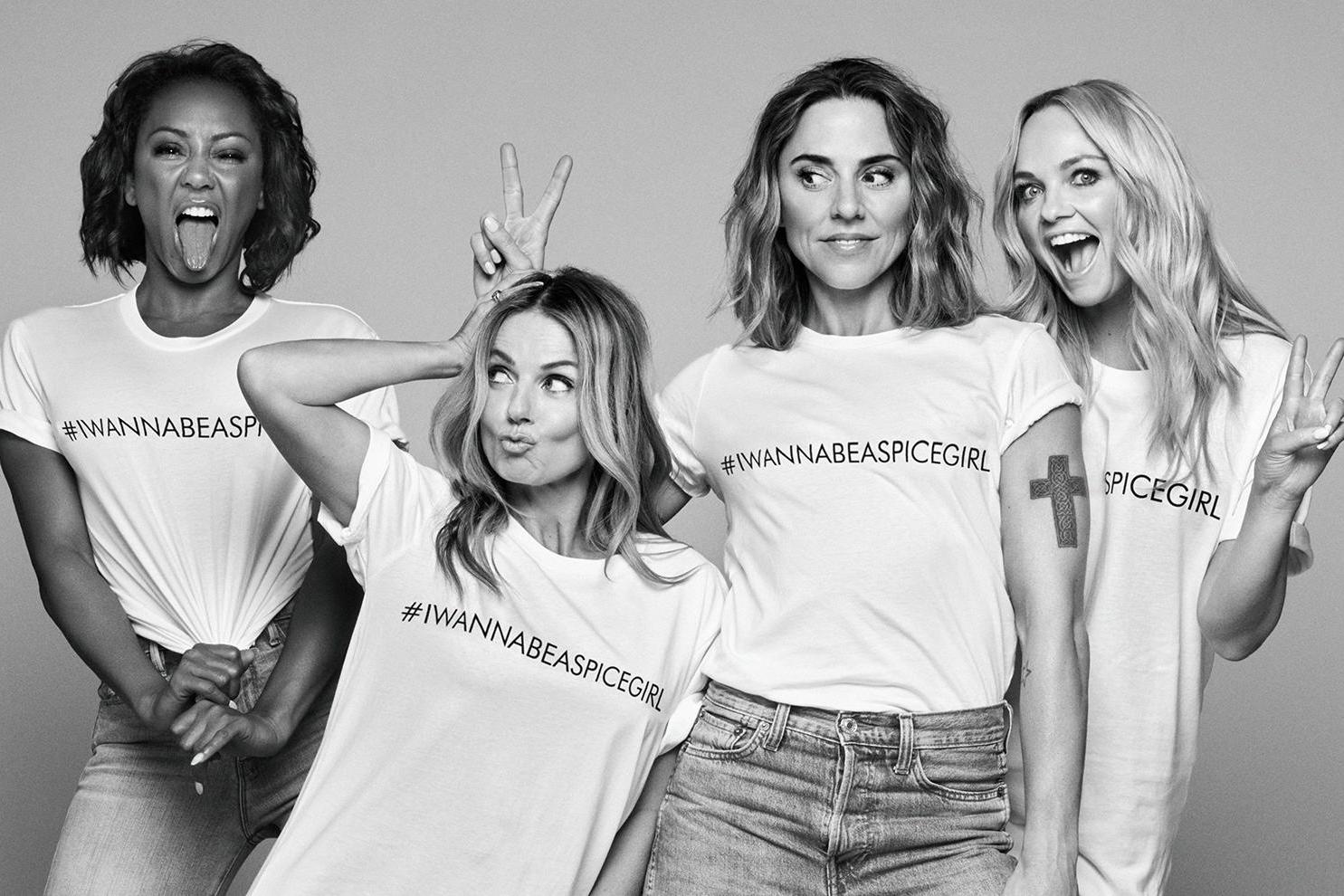Spice Girls 'deeply shocked' at reports their gender justice T-shirts produced by factory 'paying women 35p an hour'
Comic Relief added that they were 'shocked and concerned by the allegations'

Your support helps us to tell the story
From reproductive rights to climate change to Big Tech, The Independent is on the ground when the story is developing. Whether it's investigating the financials of Elon Musk's pro-Trump PAC or producing our latest documentary, 'The A Word', which shines a light on the American women fighting for reproductive rights, we know how important it is to parse out the facts from the messaging.
At such a critical moment in US history, we need reporters on the ground. Your donation allows us to keep sending journalists to speak to both sides of the story.
The Independent is trusted by Americans across the entire political spectrum. And unlike many other quality news outlets, we choose not to lock Americans out of our reporting and analysis with paywalls. We believe quality journalism should be available to everyone, paid for by those who can afford it.
Your support makes all the difference.The Spice Girls have said they are “deeply shocked and appalled” after reports emerged that their “gender justice” T-shirts were being produced by a Bangladesh-based factory where women earn the equivalent of 35p an hour.
The Guardian reports that the charity tops, which were being sold to raise money for Comic Relief’s fund to help “champion equality for women”, were being made by mostly female machinists who are allegedly forced to work up to 16 hours a day.
Commissioned by the Spice Girls and featuring the has hashtag #IWannaBeASpiceGirl printed on them, the T-shirts sold for £19.40 each, with £11.60 from each sale going toward the charity.
The iconic girl-group said the partnership was important because “equality and the movement of people power have always been at the heart of the band”. Celebrities spotted wearing the garment include Holly Willoughby, Sam Smith and Jessie J – none of whom would have been aware of the alleged working conditions under which they were made.
One employee at the factory producing the T-shirts told the publication: “We don’t get paid enough and we work in inhuman conditions.” Another worker alleges that their managers use abusive language, calling them “daughters of prostitutes” for not hitting targets.
Spice Girls apologised in their statement and said they have demanded a “full explanation” from Represent, the online retailer commissioned to make the T-shirts.
“The band intend to demand that Represent donate their profits from this initiative to localised campaigns in Bangladesh,” the statement continued.
Comic Relief said they were “shocked and concerned by the allegations”. They said they had done initial sourcing checks on Represent, but the outlet switched to a different supplier, the Belgian company Stanley/Stella, without their knowledge.
A representative for Represent said they took “full responsibility” for choosing Stanley/Stella, reasoning that they went with the outlet ”due to the brand’s strong reputation and leadership within the Fair Wear Foundation”.
Enjoy unlimited access to 100 million ad-free songs and podcasts with Amazon Music
Sign up now for a 4 month free trial (3 months for non-Prime members)
Enjoy unlimited access to 100 million ad-free songs and podcasts with Amazon Music
Sign up now for a 4 month free trial (3 months for non-Prime members)
Stanley/Stella issued a statement to The Independent saying they were “shocked” by the report and that they “take any complaints very seriously and will investigate all of them”.
The supplier said they will investigate the situation and collaborating with the factory who produce the blank T-shirts, Interstoff Apparels, should the allegations be proven true. They added that an audit by the International Fair Wear Foundation found no issues with the factory.
Naimul Bashar Chowdhury, director of Interstoff Apparels, said The Guardian’s findings were “simply not true”.
He added that they have a “zero-tolerance policy on harassment and use of any slangs or abusive language” and that they adhered to the government’s legal minimum wage requirements.
A campaigner in Bangladesh conversely said: “The women who are producing these clothes are getting poverty wages. They don’t have a dignified job. What kind of gender justice is that?”
The T-shirts were sold throughout a three-week period last year, with all proceeds going to Power Up, a part of Comic Relief’s Gender Justice campaign.
Join our commenting forum
Join thought-provoking conversations, follow other Independent readers and see their replies
Comments